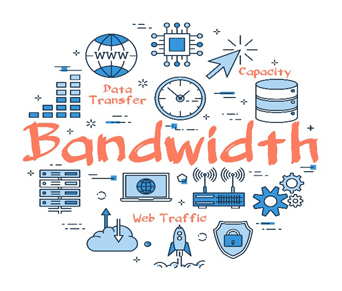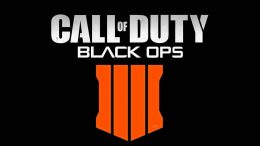Online Gaming, Speed, and Latency on 4G LTE

Today, wireless internet connections like 4G LTE are finally fast enough to support online gaming. For gamers who use 4G LTE as their primary internet connection, faster speeds open new opportunities to play fast-paced games like first-person shooters, explore complex game modes, and connect with other gamers in multiplayer scenarios. When it comes to gaming, network latency, or ping time, is often more critical than the speed of your connection.
Let’s take a closer look at how the minimum internet speeds for online gaming on Xbox One, PC, PlayStation 4, and Nintendo Switch compare to the average internet speeds of a 4G LTE connection. Then, we’ll quickly examine how game modes and game settings affect those minimum requirements.
Minimum Throughput Speeds for Gaming
The average 4G LTE internet connection from Verizon, AT&T, or Sprint has a download speed of between 5 and 12 Mbps and an upload speed of between 2 and 5 Mbps.  For many subscribers, however, 4G LTE download speeds reach up to 50 Mbps. According to RootMetrics, 4G LTE networks meet or exceed their advertised speeds in most markets.
For many subscribers, however, 4G LTE download speeds reach up to 50 Mbps. According to RootMetrics, 4G LTE networks meet or exceed their advertised speeds in most markets.
For Xbox One, the minimum throughput requirements for online gaming on Xbox Live are a download speed of 3 Mbps and an upload speed of 500 Kbps. For standard definition (SD) video streaming, Xbox recommends a download speed of 1 Mbps and, for high definition (HD) video streaming, it recommends a download speed of 3.5 Mbps.
PC, PlayStation 4, and Nintendo Switch have similar minimum throughput requirements, although some gamers on these platforms play on connections with download speeds of as little as 1 Mbps. These gamers are, likely, playing games and game modes with lower than average minimum speed requirements.
Minimum download and upload speed requirements vary somewhat by game, game mode, and game settings. In League of Legends, for example, the Twisted Treeline mode doesn’t require as much speed as other, more populated modes. When playing any game, using voice chat will significantly increase your required minimum internet speeds.
For Real-time Gaming, Low Latency is Key
When it comes to gaming, the latency of your internet connection is often more critical than the speed of your connection. Latency, or ping time, is the time it takes in milliseconds for your network to connect to the internet host and start uploading or downloading data.
 A latency in your connection of greater than 100 milliseconds can cause severe lags in your game. Latency is particularly important in games, like first-person shooters, that require close to real-time responses from players. In these games, lags make a huge difference in performance.
A latency in your connection of greater than 100 milliseconds can cause severe lags in your game. Latency is particularly important in games, like first-person shooters, that require close to real-time responses from players. In these games, lags make a huge difference in performance.
Most 4G LTE connections have an average latency o less than 70 milliseconds, which is far below the recommended maximum latency of 150 milliseconds for Xbox Live. In general, any internet connection with a latency of less than 100 milliseconds should support most games.
| Minimum internet speeds for online gaming | |
|---|---|
| Download speed | 3 Mbps |
| Upload speed | 500 Kbps |
| Latency | 150 milliseconds |
| Average 4G LTE internet speeds | |
|---|---|
| Download speed | 5-12 Mbps |
| Upload speed | 2-5 Mbps |
| Latency | 70 milliseconds |
Game Downloads Can Test Your Data Limit
While, in general, online gaming uses far fewer mobile data than video streaming, downloading games and patches can eat through data quickly. While a game of PUBG uses, at most, 50 MB of data, downloading PUBG on PlayStation 4 uses 25 GB of data. If your 4G LTE connection has a data limit, downloads and patches can strain your connection.
 If you have a data limit and are using a portable device like a laptop, we suggest turning off automatic updates on your game. Instead, preserve your mobile data by connecting to public WiFi (in, for example, a library) before downloading large game patches and updates.
If you have a data limit and are using a portable device like a laptop, we suggest turning off automatic updates on your game. Instead, preserve your mobile data by connecting to public WiFi (in, for example, a library) before downloading large game patches and updates.
Want to know how much data your favorite game uses? Find out how much data it takes to play, download, and update PUBG, League of Legends, Fortnite, FIFA 18, and DOTA 2.





